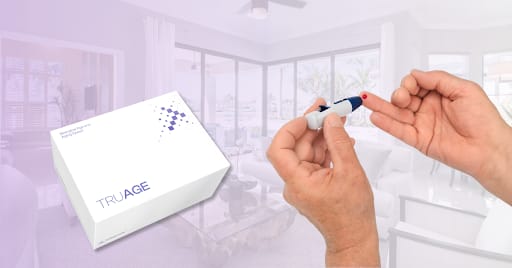Happy Sunday 👋
10almonds tip: you can improve the nutritional profile of mayonnaise by mixing it 1:1 with plain yogurt (the kind without additives)!
In today’s email we cover how to process rage healthily, signs & symptoms of hypothyroidism, and managing autoimmune conditions.
At 10almonds, we recently reviewed a book about the importance of data-driven health, today’s sponsor TruDiagnostic is offering just that: its groundbreaking TrueAge & TruHealth plan includes at-home blood test that gives a wealth of data including 185 key biomarkers, as well as 900,000 epigenetic sites, before crunching the numbers to give you personalized health recommendations. Check it out!
Today’s Main Feature
How To Process Rage, Healthily
Bottle it up, or let it out? Both common approaches have their downsides, but fortunately, there is a third way that’s much healthier:
Recommended Reading
Watch and Learn
Doctor Explains: 15 Signs Of Hypothyroidism
Dr. Siobhan Deshauer explains the signs (and in some cases, symptoms) that can point to this oft-underdiagnosed condition:
Prefer text? The above video will take you to a 10almonds page with a text-overview, as well as the video!
Our Sponsors Make This Publication Possible
Your Personalized Blueprint for Health Starting at $499
What if a single test could unlock everything you need to know about your health? With TruAge, it can.
From identifying your biological age to tracking key markers like inflammation, vitamins, and metabolic health, their reports are fully customized to you.
You’ll receive actionable steps based on your results, giving you the clarity and confidence to make impactful changes. One finger prick of blood, one life-changing report.
10almonds readers can save 20% today with code WELLNESS20:
Please do visit our sponsors—they help keep 10almonds free
This Or That?
Vote on Which is Healthier
Yesterday we asked you to choose between artichoke and red cabbage—both excellent options, but we picked the artichoke (click here to read about why), as did 39% of you!
Now for today’s choice:
Click on whichever you think is better for you!
Bonus (Sponsored) Recommendation
We know 10almonds readers love learning in a convenient, bite-size fashion. Check out this list of other newsletters our readers also enjoy!
One-Minute Book Review
Goodbye Autoimmune Disease: How to Prevent and Reverse Chronic Illness and Inflammatory Symptoms Using Supermarket Foods – by Dr. Brooke Goldner
First let’s examine: will it prevent and reverse all the chronic illnesses mentioned on the cover? Probably not. In fact, for several of the things mentioned, it is not currently known what causes them, and others, there are known genetic factors that may not be undone by lifestyle changes.
However! A more modest claim would have been more justified, such as “alleviate the symptoms of”.
On account of this, the book still has merit.
The main thrust of the book is, as you might expect, to reduce inflammation by avoiding inflammatory things and enjoy anti-inflammatory things. It’s not just diet, though, and it also covers a lot of other lifestyle factors, including the obvious topics of exercise, sleep, etc but also various mental health aspects that often go overlooked. The dietary component is important, though, and has a 6-step process that is absolutely integral to her method, so that’s an important thing to focus on.
The book makes heavy use of anecdotal case studies. Case studies are great when one wants to illustrate how something works; they’re not so great as a putative proof that something works, so we’d rather have seen fewer anecdotes and more actual science.
The author is also her own case study, having recovered from systemic lupus nephritis, which means two things:
She does understand what it is like to have a chronic illness, which sets her apart from a lot of doctors
She overlooks survivorship bias, and posits that the same approach will work for everyone with all chronic illnesses
The latter may be a little overly optimistic, but on balance, optimism is generally a beneficial thing, so this is better than the alternative of (just as incorrectly) assuming there is no hope.
Bottom line: this may not in fact cure all autoimmune conditions, but at the very least it will alleviate a lot of symptoms, if not reverse disease. So, if you have an autoimmune condition, following this book’s very reasonable advice does seem very sound.
Penny For Your Thoughts?
What did you think of today's newsletter?
Wishing you a peaceful Sunday,
The 10almonds Team








